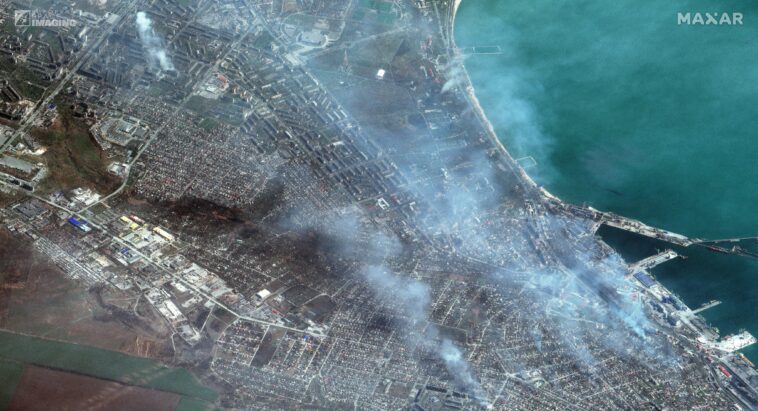Russia prepares for assault on Ukraine’s east, south. Russia prepares for an assault on the Donetsk and Tavriya axes, the General Staff of the Ukrainian Armed Forces said in an evening report on April 13. “[Russian forces]continue to attempt to capture certain areas of Mariupol and conduct air strikes.”
“[Russian troops] attempt assault operations in areas near Severodonetsk, Rubizhne, and Popasna,” the statement reads.
Forty-two countries appeal to The Hague-based court over alleged war crimes in Ukraine. “Forty-two countries have appealed to the International Criminal Court in The Hague,” Ukraine’s Minister of Justice Denys Malyuska said. “International investigation into Russia’s war crimes began. Appeals by those countries simplified and sped up access to the procedure for Ukraine,” he added.
Ukraine deployed experts to gather evidence of Russia’s war crimes in Bucha. Yet Ukraine lacks resources as the number of the crimes is huge.
“Russia commits a huge number of crimes, and [investigation] requires big efforts. While our resources are scarce and the problem is big, investigating Russia’s war crimes is our priority. We have international support. This week, France is to send forensic experts. We are negotiating that with other EU countries. It is very likely that they will send their experts as well to help us cope with the heavy workload,” Malyuska said.
What is most difficult is to hold to account those who gave unlawful orders, the Minister of Justice said.
“We collect data to charge Russian soldiers for the offenses they committed and the [commanders] who gave them orders,” Maluyska said.
Presidents of Poland, Estonia, Lithuania, Latvia visit Borodyanka, a town northwest of Kyiv heavily affected by Russia’s invasion. “Our aim is to support President Zelenskyi and the defenders of Ukraine at a decisive moment for this country,” Polish President Andrzej Duda said.
“The horrors of war that Ukraine has suffered could not have been committed by human beings. The creatures that did this don’t deserve the name. This is a conscious, targeted and extremely brutal annihilation of the Ukrainian nation, Lithuanian President Gitanas Nauseda posted on Twitter.
Ukraine in Flames #34. How Russian propaganda works during the war?
Propaganda is at the forefront of Russia’s aggression against Ukraine. This war began with Vladimir Putin’s hour-long address to the nation, where he manipulated the facts and mentioned narratives on which the modern Russian foreign policy and state truth stand.
Russian propaganda is an integral part of the Russian military machine, which has already claimed the lives of thousands of Ukrainians and threatens the entire civilized public. As a result, Russians who learn the truth from the state media live in an alternative reality. The Russian army is portrayed as triumphant, loss-less and humane. In contrast, it’s the Ukrainian army that is committing atrocities, killing civilians, sustaining heavy losses and losing territory to the Russian forces.
How does Russian propaganda work during the war with Ukraine and how to counter it? Leading experts from various fields are ready to share their observations and ideas in Ukraine in Flames #34.
Speakers:
David Stulik, senior analyst at European Values Center For Security Policy
Iryna Eihelson, phD in social psychology, conflict psychologist
Vitalii Rybak, chief analyst at Internews Ukraine
Olena Churanova, fact-checker at StopFake
Roman Osadchuk, research assistant at DFRLab
Ksenia Illiuk, analyst at Detector Media
Aftermath in Kyiv suburbs as Russian troops retreat. Irpin bridge rebuilt. English subtitles
Ukrainian MPs visit Kyiv region. Iryna Gerashchenko shows the aftermath of Russia’s occupation in Kyiv suburbs. Wroks to restore infrastructure continue.
Pillage in Lypivka, Kyiv region – survivors testify
Ukrainian MPs visited Kyiv region. Iryna Gerashchenko shows the aftermath of Russia’s occupation of Lypivka village in March 2022.




